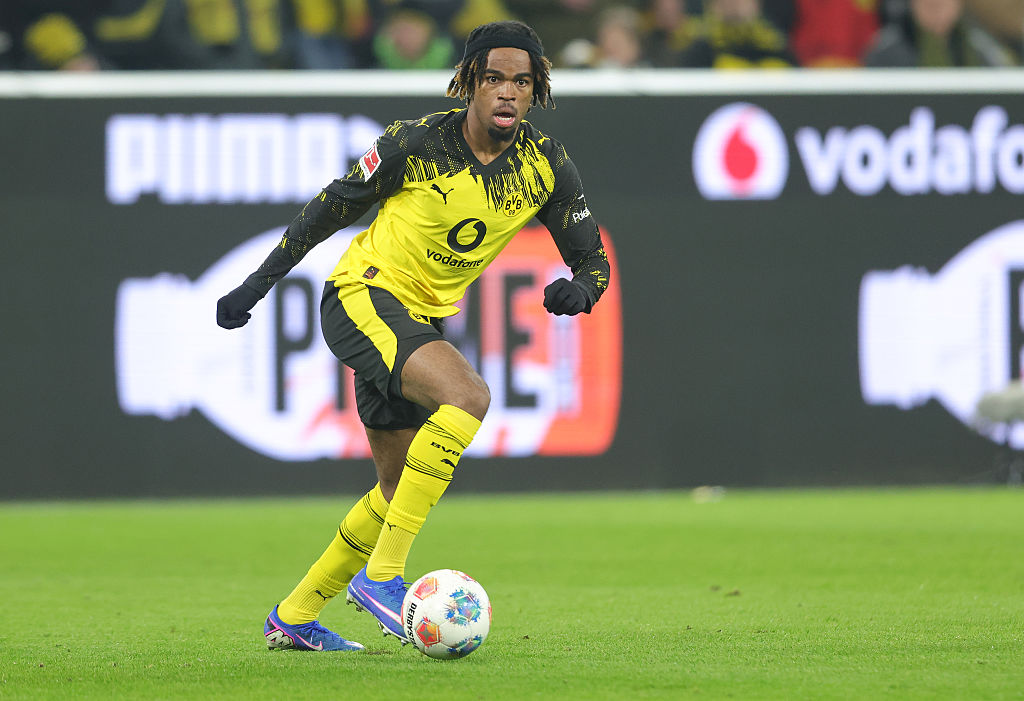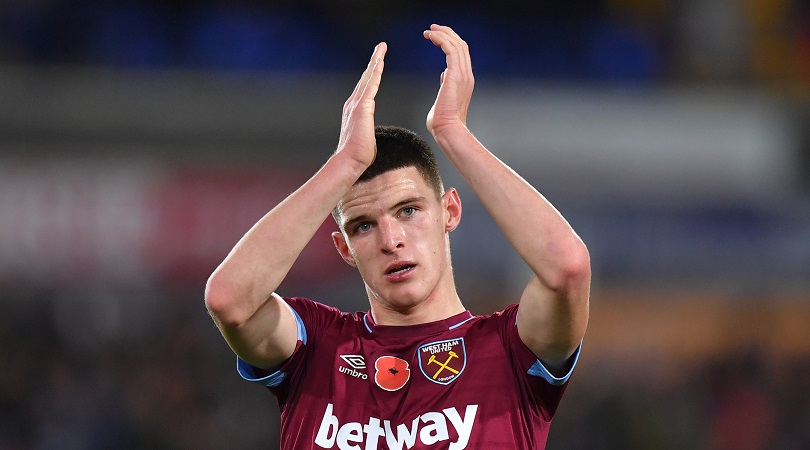
Change of heart
Declan Rice has three caps for the Republic of Ireland, but the West Ham midfielder has finally declared that his international future lies with England, the country of his birth.
In a mature statement, the 20-year-old said: "I consider myself to be of mixed nationality. I have equal respect for both England and Ireland and therefore the national team I choose to represent is not a clear-cut, simple selection. Ultimately, it is a personal decision I have made with my heart and my head."
In this slideshow, we pick out more players who turned out for two different international teams…
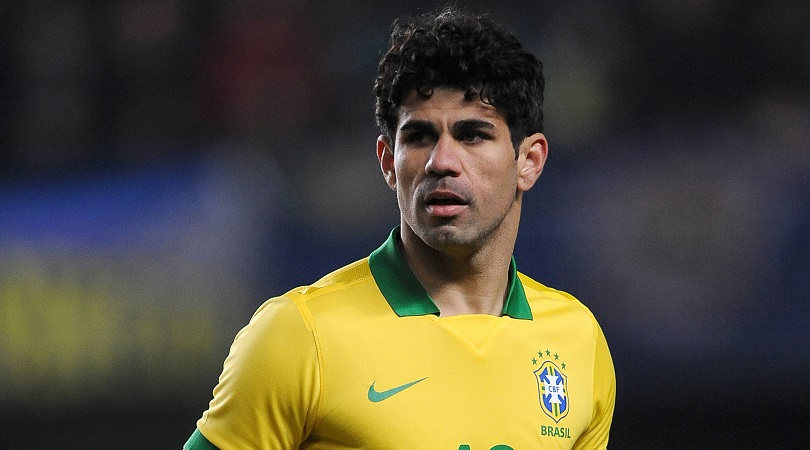
Diego Costa – Brazil, Spain
Costa spent two years with Sao Paulo-based side Barcelona Esportivo Capela as a teenager, but he never played a professional match in Brazil, instead making his senior bow at Penafiel in Portugal’s second tier. Spells with Celta Vigo, Albacete and Real Valladolid followed, before the striker hit the headlines by scoring 27 league goals in Atletico Madrid’s title-winning campaign of 2013/14.
It was during that season that Costa decided to switch international allegiance from Brazil, for whom he’d played twice, to Spain. “This is where I have done everything. All that I have in my life was given to me by this country,” he explained.
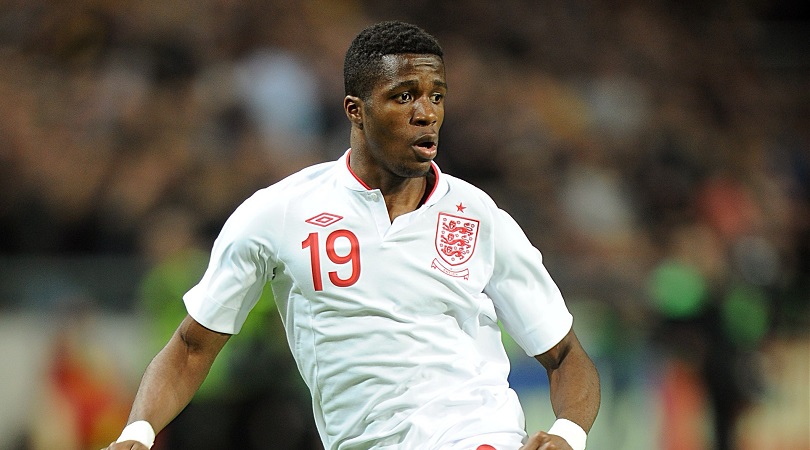
Wilfried Zaha – England, Ivory Coast
Zaha is currently managed by fellow Croydonian Roy Hodgson at Crystal Palace, but this isn’t the first time the two men have worked together. Indeed, the winger won two England caps during Hodgson’s time in charge of the national team, making brief cameo appearances in friendlies against Sweden and Scotland.
Zaha never played in a competitive game, though, which left him free to join the Ivory Coast camp after growing frustrated with the lack of opportunities afforded to him by the Three Lions. Gareth Southgate launched a last-ditch attempt to convince him otherwise, but the Palace man’s mind was made up and he made his debut for the country of his birth in January 2017.
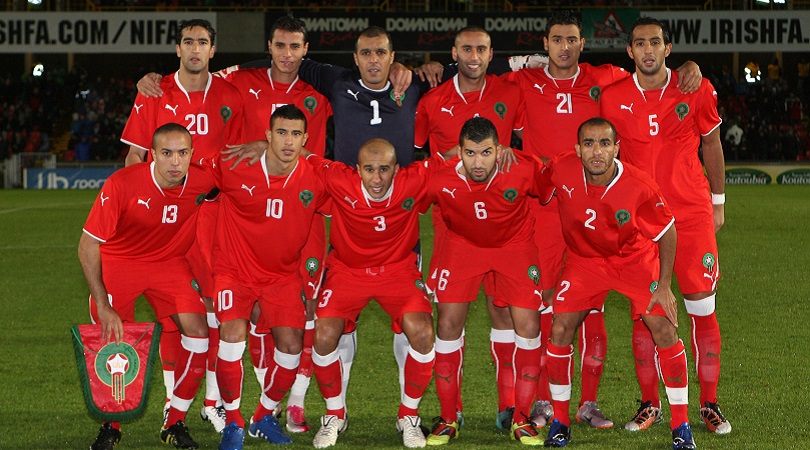
Nacer Chadli – Morocco, Belgium
Like so many members of Belgium’s multicultural squad, Chadli (top row, second right) was also eligible to play for another country – in his case, Morocco. The North Africans came calling first, and he made his international debut in a 1-1 draw away to Northern Ireland in November 2010.
Less than three months later, Chadli won his first Belgium cap in a friendly against Finland. He’s been a regular for the Red Devils ever since and enjoyed his best moment for them at the 2018 World Cup, coming off the bench to score an injury-time winner in the second-round victory over Japan.
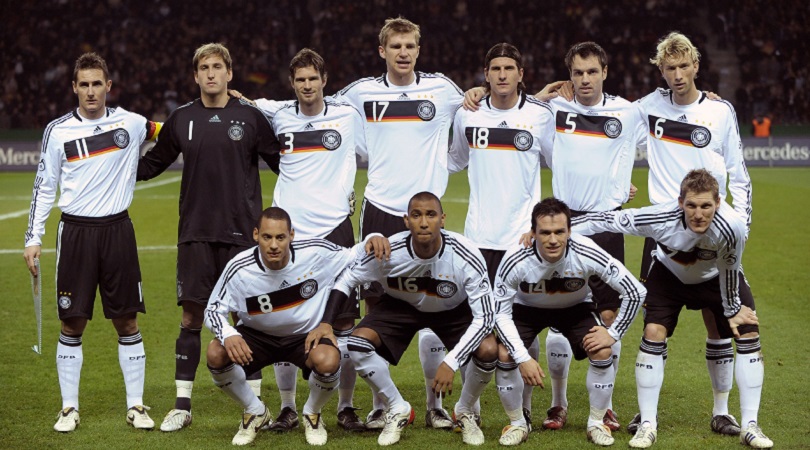
Jermaine Jones – Germany, USA
During his time in charge of the United States, Jurgen Klinsmann recruited several Germany-born players to his American cause, including John Brooks, Fabian Johnson and Timothy Chandler. Arguably the most famous of all, Jones (bottom row, first left), wasn’t one of them – he’d made the switch before Klinsmann was appointed. The midfielder was also the only one to have played for Germany at senior level.
Those three appearances all came in 2008, before Jones switched allegiance after seeing no future for himself under Joachim Löw. He went on to play 69 times for the United States, scoring four goals.
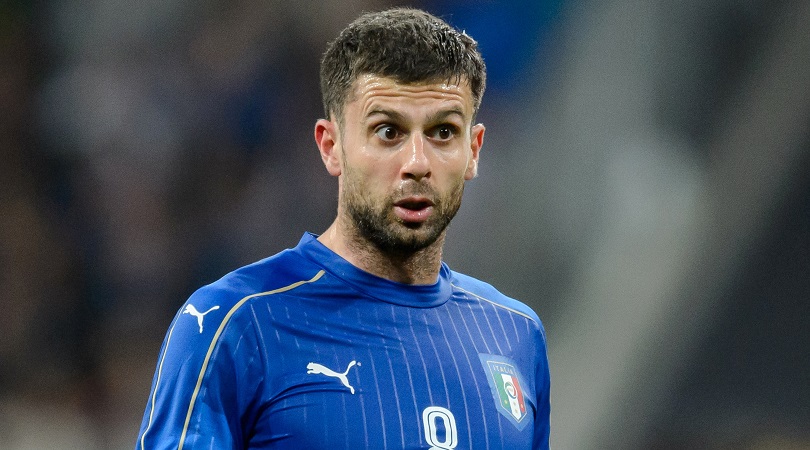
Thiago Motta – Brazil, Italy
The defensive midfielder, who picked up plenty of silverware during spells at Barcelona, Inter and PSG, won two caps for his native Brazil back in 2003. He soon fell out of favour with the Seleção, though, and later accepted Italy’s offer to transfer allegiance.
The request from Cesare Prandelli came during his renaissance in Serie A, the season after Motta had won the Treble with Inter. He went on to become a key component of Prandelli’s side over a number of years, and helped the Azzurri reach the final of Euro 2016.
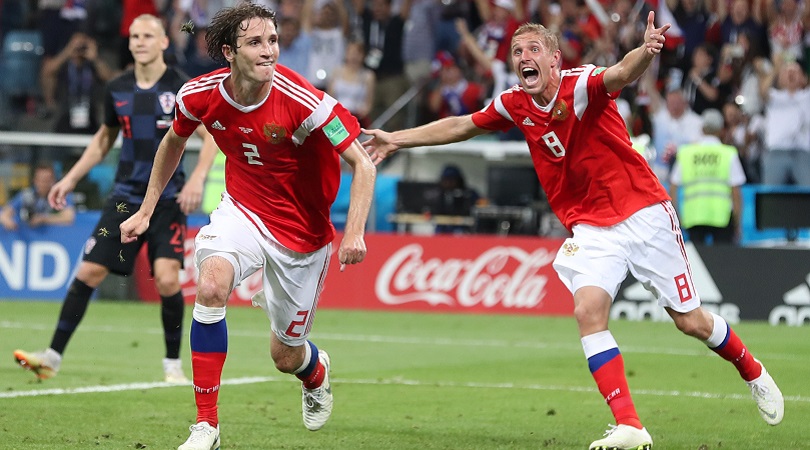
Mario Fernandes – Brazil and Russia
All but two members of Russia’s squad at the 2018 World Cup played their football at home. Denis Cheryshev and Vladimir Gabulov were the two exceptions, but CSKA Moscow’s Fernandes was arguably the most unusual case: the Brazilian had once played a single match for his home country before shifting his loyalties by virtue of the five-year residency rule.
An intervention from Vladimir Putin was required before Fernandes could become a Russia citizen, with the defender making his debut in late 2017. He went on to start every game at the World Cup and scored a memorable extra-time equaliser in the quarter-final defeat by Croatia.
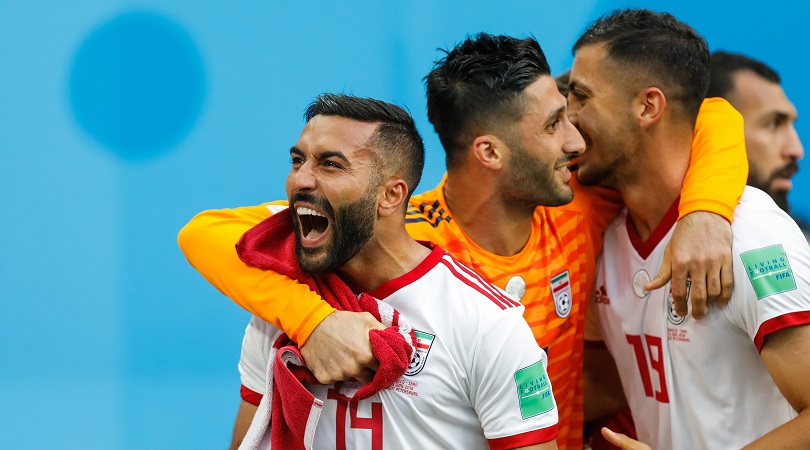
Saman Ghoddos – Sweden, Iran
Born in Sweden to Iranian parents, Ghoddos was eligible to play for both nations. Sweden were the first to express their interest in December 2016 after the attacker had impressed for Ostersund in his first season at the top level, notching 12 goals in all competitions. He featured in two friendlies and even found the net in a 6-0 thrashing of Slovakia.
However, Carlos Queiroz got in touch as Ghoddos wavered over whether or not to switch allegiance. He was called up by both countries but eventually chose Iran and helped his new side to the World Cup, where he featured as a substitute in all three group games.
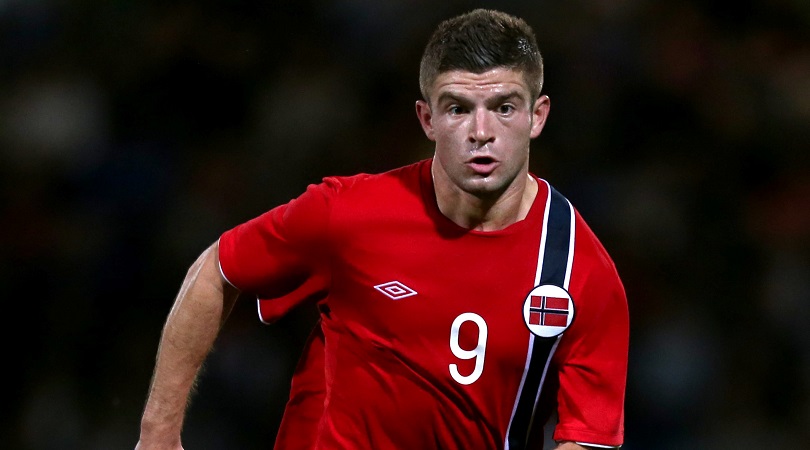
Valon Berisha – Norway, Kosovo
After a long struggle to be recognised by FIFA, Kosovo finally got its wish in 2016. The ruling allowed them to play competitive matches and created a panic among several other countries, who feared that some of their players could choose to defect.
Xherdan Shaqiri, Valon Behrami and Adnan Januzaj ultimately opted against representing Kosovo, but Berisha – who had previously won 20 caps for Norway – did make the move. He even scored on debut for the country of his parents’ birth, and won his 10th cap against the Faroe Islands in October.
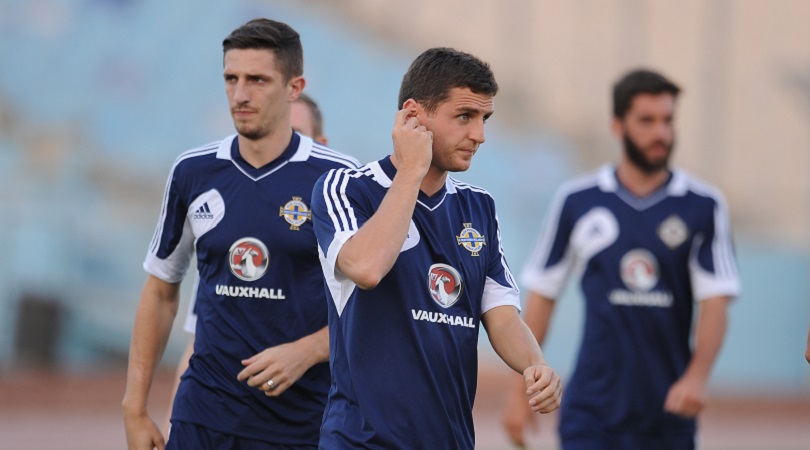
Alex Bruce – Republic of Ireland, Northern Ireland
Steve Bruce may have won three Premier League titles, three FA Cups and the Cup Winners’ Cup at Manchester United, but international recognition eluded him throughout his career. His son Alex, born in Norwich, took heed and looked across the Irish Sea instead, appearing twice for the Republic of Ireland and twice for Northern Ireland.
The defender was eligible to play for either nation through his Bangor-born paternal grandmother, initially opting for the Republic in 2007. Four years later he controversially switched to Northern Ireland, but was unable to establish himself in their side either.
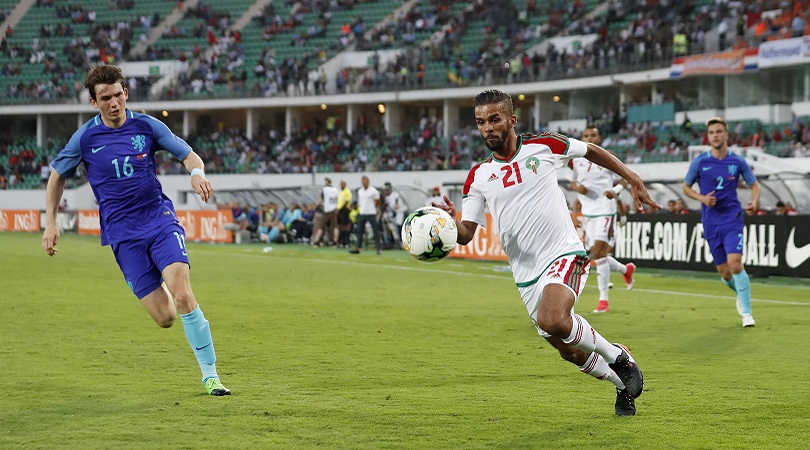
Mehdi Carcela-Gonzalez – Belgium, Morocco
Born and raised in Belgium, Carcela-Gonzalez was also eligible for Morocco through his parents. The midfielder’s fine form for Standard Liege earned him two caps for the Red Devils in 2009/10, but he changed his mind in 2011, taking up Morocco’s offer instead.
Carcela-Gonzalez won a penalty on his debut, a 3-0 defeat of Niger, and has picked up another 20 caps for the Atlas Lions. He was part of their 2018 World Cup squad, but limited to just 15 minutes of action as Morocco were eliminated before the knockout phase.
Greg Lea is a freelance football journalist who's filled in wherever FourFourTwo needs him since 2014. He became a Crystal Palace fan after watching a 1-0 loss to Port Vale in 1998, and once got on the scoresheet in a primary school game against Wilfried Zaha's Whitehorse Manor (an own goal in an 8-0 defeat).
 Join The Club
Join The Club











